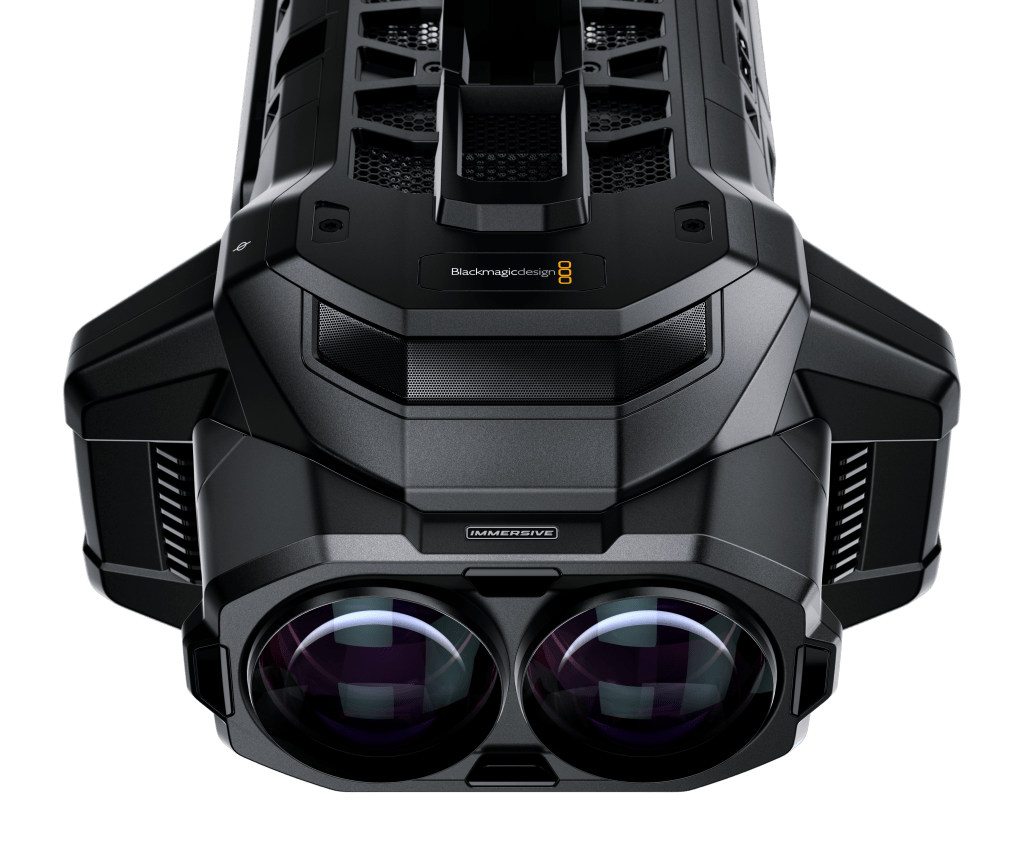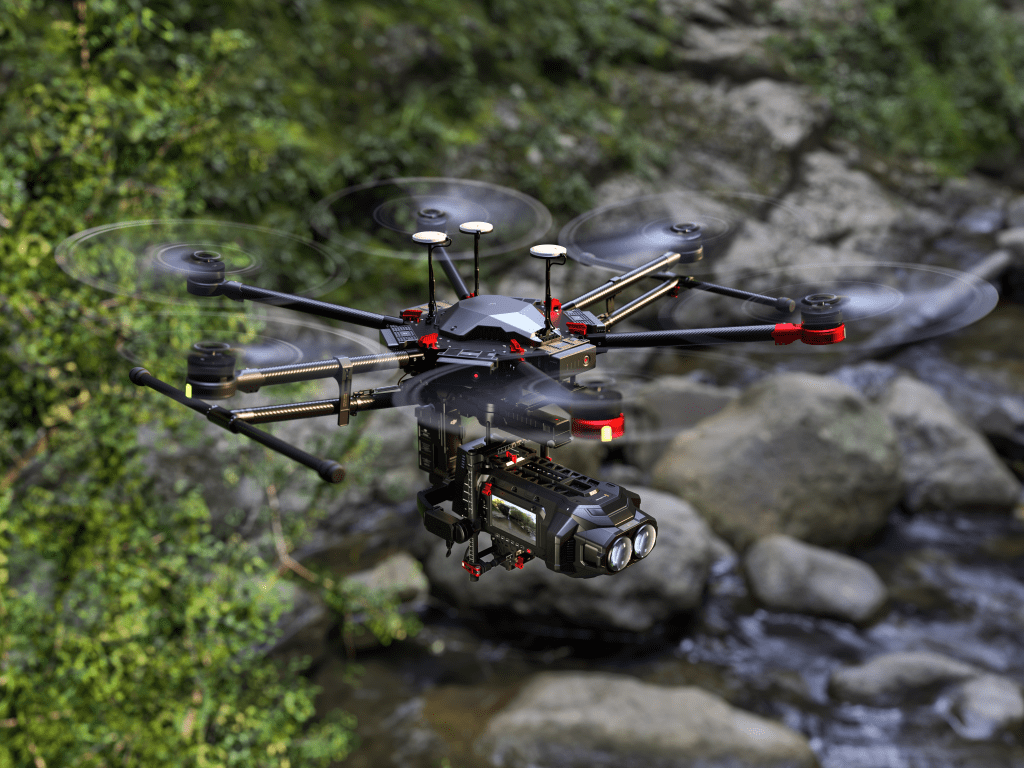From Hollywood to immersive VR: Blackmagic Design is rewriting the script on entertainment
Cutting-edge film and video technology company Blackmagic Design has long been a Hollywood favourite for its slick equipment, with recent blockbusters from Barbie to Oppenheimer using the Australian innovator’s software. Its high-quality and affordable cameras have built a strong following from decorated directors to YouTubers. Now, the Melbourne-based business is rewriting the script on entertainment, with an immersive VR build for Apple.
BRANDVOICE – SPECIAL FEATURE

When the COVID-19 pandemic stopped Hollywood from coming together in person for the Emmy Awards, a frenzied operation kicked off to ensure the show could go on in the television stars’ living rooms.
The large-scale manoeuvre highlighted the lengths the industry was going to in order to try and keep the lights on amid global lockdowns. For Blackmagic Design founder and CEO Grant Petty, it also demonstrated how adaptable innovative companies have to be to keep pace with the changing world of digital and video media.
“It was our gear sitting behind the trolleys,” Petty says. “It was run out to dozens and dozens of sites, and we had just to keep rolling.”
US-based rental company C Mount created kits using Blackmagic cameras to create the first virtually-broadcast Emmys in 2020, in a year that would further crystallise how Petty thinks about leadership.
“I remember thinking ‘we can either rise to this challenge or let it beat us’.”
Grant Petty
“COVID-19 was an opportunity to adapt. For example, bringing plastics in-house (for local manufacturing) was a COVID-19 response because we had a situation where we were at the mercy of suppliers, and I thought, ‘why aren’t we doing that ourselves?’,” he says.
Innovation and adaptability continue to drive the agenda for Petty and his Melbourne-based company, whose post-production grading products were used on some of Hollywood’s biggest blockbusters, including Oppenheimer and Guardians of the Galaxy Vol 3. Blackmagic’s high-quality cameras have been used to capture notable, intricate sequences, from the action of Spider-Man: No Way Home to the underwater shots in the most recent season of The White Lotus. Their lower price point also makes them an increasingly popular choice for YouTubers and emergent social media stars looking to earn income or a following online.
Since COVID-19, Blackmagic has hit the accelerator on development and signed a deal with Apple to create the world’s first commercial camera and editing software for Apple Immersive Video and Apple Vision Pro.
“That’s been exciting because this is a totally new entertainment category,” Petty says. “You’re kind of in the scene with the actors, so it’s more like theatre.”
In addition to the camera, professional filmmakers using the Apple VR products will be able to access a custom version of DaVinci Resolve, the Blackmagic editing, colour correction, VFX and audio editing solution that has become the world’s most used post-production software.
A version of DaVinci Resolve is offered as a free download to budding filmmakers to democratise a traditionally expensive and prohibitive process, Petty says. A paid version with additional features can be purchased for $295.
“Fifteen years ago, it used to be over a million dollars to buy a visual effects system that wasn’t nearly as powerful,” Petty says. “But I think what you want to do is keep your mind on your original purpose; that reason for you to exist.”
Humble beginnings
Petty grew up in country Victoria, where he has early memories of being told to “f*** off back to public housing where you belong”.
He says he was heavily affected by the class system growing up in Shepparton and saw the same hierarchical patterns when he started working in television and film post-production, with technical people overruling creatives.
“There were some beautifully creative people that were just sort of pushed aside,” he says.
The catalyst for creating Blackmagic Design, with co-founder Doug Clarke, was to try and reduce the cost and time involved in film and production processes and improve the accessibility of equipment.
“Outside the industry, people have no idea how hard everyone in TV works. They’re petrified of not getting the next job. In my mind, our job is to make these guys’ jobs easier,” he says.
Despite hitting a valuation height of an estimated $1.4bn during COVID, Petty says it’s a mistake to let ego get in the way when you’re working in the film industry.
“You are the stage that these people perform on. You are not the performance,” he says. “It puts you in your place, which is easy for me. I was an engineer anyway.”
Enabling new types of storytelling

In recent years, Petty’s mission to democratise filmmaking through affordable cameras and post-production equipment has captured the attention of a new generation of storytellers looking to make their mark.
A prime example is young Australian filmmaker Jessica Nipperess, whose horror comedy short Devil Bean was screened at the American Pavilion’s Emerging Filmmakers Showcase at the 2022 Cannes Film Festival. Nipperess shot the film on Blackmagic’s Pocket Cinema 4K digital film camera.
Blackmagic’s equipment is increasingly reaching YouTubers, too, including Sarah Renae Clark, whose colouring videos have attracted a following of more than 330,000. Clark began her journey balancing a small camera on an ironing board and now uses multiple Blackmagic 6k cameras to showcase her skills. She says Blackmagic has supported her channel and helped to grow her audience from less than 100,000 two years ago to where it is today.
For Blackmagic’s Petty, it’s the company’s responsibility to balance the needs of both Hollywood and aspiring creatives who make movies from their bedrooms or use the technology for sports, real estate, reporting and social media.
“It can be tricky because, obviously, they’ve all got very different needs, but often they will want similar quality,” he says. “What you can’t do is overwhelm people at the lower end with complexity, but you also don’t want to put a glass ceiling above them.
“We know we can deliver a high-quality, dynamic range, and there’s no reason why that shouldn’t be included in our cheapest camera.”
The future of filmmaking

As artificial intelligence (AI) continues to transform the film industry, from scriptwriting to editing, Petty has mixed feelings about its utility.
“Look, with all new technologies, there’s good and bad sides,” he says.
“To me, the problem is, what you’ve got at the moment is you’ve got this very investor-trendy kind of AI generative stuff that’s going on, and people are losing their minds over it.”
Petty compares the current wave of investor interest to the Dotcom bubble and says people often don’t know exactly what they’re investing in.
“I’m also deeply concerned about creative markets where AI training could be used on your material before you’ve even released it to the world,” he says.
In terms of its application to filmmaking and future products, he says it comes back to the Blackmagic’s central thesis around making storyteller’s lives easier.
“I think the best way to look at AI is this: Is the company using it to provide additional capability to their products?”
Petty uses the example of DaVinci Resolve’s paid version, which incorporates AI features to give customers more options. Again, he says that fits squarely into what Blackmagic is trying to achieve.
“Fundamentally, it’s just trying to make your customers’ lives better, trying to give them more freedom,” he says.
For more information, visit https://www.blackmagicdesign.com/au